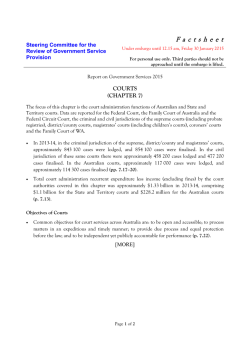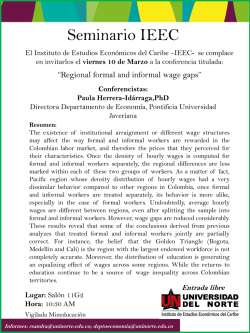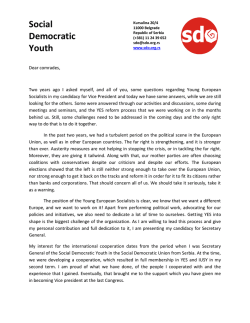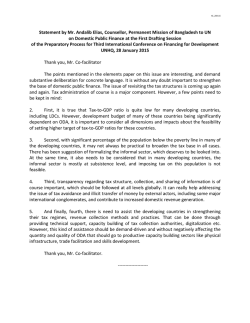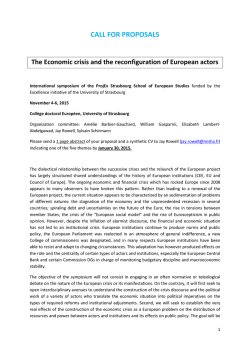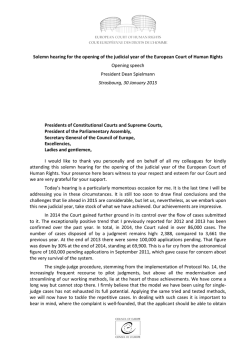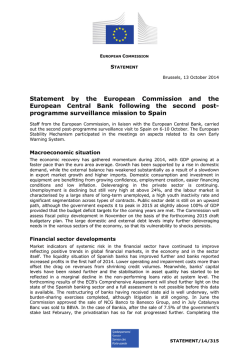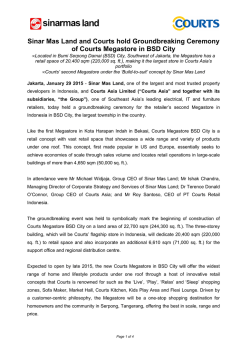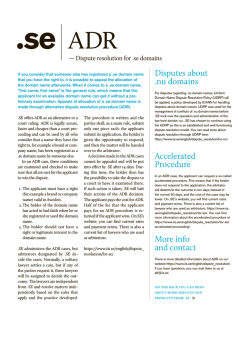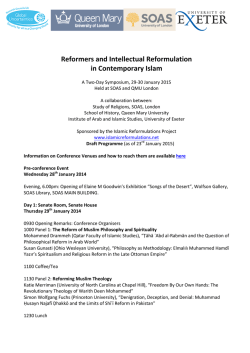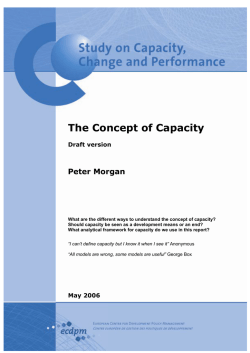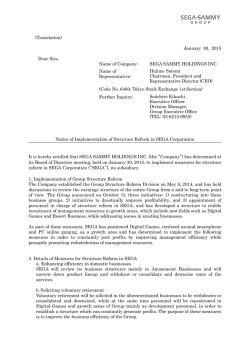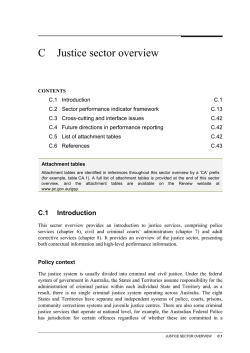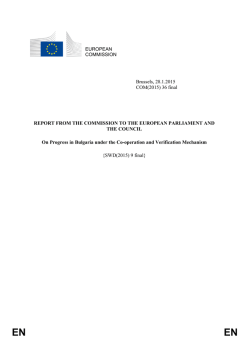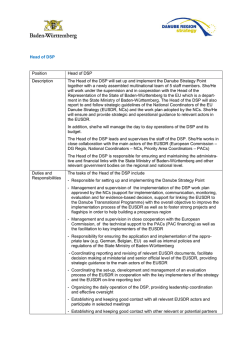
Download the publication now
ACCESS TO JUSTICE AND THE RULE OF LAW: the British Council approach FOREWORD MAGNA CARTA SYMBOLISES THE VALUES OF THE COMMON LAW. IT IS A REMARKABLE HISTORIC STATEMENT SETTING OUT THE FUNDAMENTAL PRINCIPLES OF THE RULE OF LAW. YET THE RULE OF LAW IS NO ARID LEGAL DOCTRINE. IT IS THE FOUNDATION OF A FAIR AND JUST SOCIETY, A GUARANTEE OF RESPONSIBLE GOVERNMENT, AND CRITICAL TO ENABLING PEACE AND CO-OPERATION. Lord Bingham, in his brilliant book The Rule of Law, said: ‘The rule of law is not fixed for all time. Some countries do not subscribe to it fully, and some subscribe only in name, if that. Even those who do subscribe to it find it difficult to apply all its precepts quite all the time. But in a world divided by differences of nationality, race, colour, religion, and wealth it is one of the greatest unifying factors, perhaps the greatest, the nearest we are likely to approach to a universal secular religion. It remains an ideal, but an ideal worth striving for, in the interests of good government and peace, at home and in the world at large.’ How then do we bring this about? One clear way is by example. We must ourselves adhere to the rule of law, maintain our standards and the excellence of our judiciary and legal profession. We also need to continue to engage not only with those who share our views, but also with those with different values and opinions. By engaging we learn and deepen understanding. On its own though, this is not enough. The rule of law is not just about governments and international bodies. It is practical and a grass roots ideal. It is grounded in relationships and individuals’ day-to-day lives. Yes, it is important for us to build the capacity of the formal justice sector. However, we must also look at values and traditions, informal justice, politics and social systems. It is these relationships that determine whether in practice there actually is the rule of law. What then does the British Council bring? Our experience gives us an understanding of the challenges of working in this area. We are well versed in working in environments where formal and informal systems exist side by side, each delivering their own value. We also bring a breadth of wider experience – in building and strengthening relationships across a whole range of sectors, of using our language training skills to support the judiciary, of using arts and culture to develop legal literacy and cultural expression as a way to bring communities together around difficult issues. We have the capacity too to go beyond the traditional, for instance using radio and television to address topical justice issues. This, combined with our 80 years of experience, our track record of working in complex and conflict situations, our neutrality and our cross-cultural experience, puts us in a unique position. The British Council is able to build trust and broker relationships in a way that may present real challenges for others. This publication serves as a brief introduction to the British Council’s approach to working in justice, law and security globally. It illustrates our work across a number of programmes: in justice sector reform, in ensuring the law supports the economic development of the poorest communities, and in engaging with civil society. And it demonstrates how fundamental this work is to the British Council’s purpose of building more open, inclusive and stable societies, for people in the UK and the rest of the world. The Rt Hon. the Baroness Prashar CBE Deputy Chair, British Council ACCESS TO JUSTICE AND THE RULE OF LAW: the British Council approach THE BRITISH COUNCIL: A CULTURAL RELATIONS APPROACH TO JUSTICE, LAW AND SECURITY THE BRITISH COUNCIL’S JUSTICE WORK BUILDS ON 25 YEARS’ APPLIED EXPERIENCE ON THE GROUND, IN EASTERN EUROPE, EAST ASIA, SOUTH ASIA AND AFRICA. WE ADOPT A SUBTLE AND INCLUSIVE APPROACH, THAT UNDERSTANDS AND VALUES UK PRIORITIES AND EXPERIENCE. ON THE GROUND WE WORK IN PARTNERSHIP, ALIGNING THESE VALUES WITH THE PRIORITIES OF LOCAL ACTORS, BUILDING ON OUR DEEP KNOWLEDGE OF THE COUNTRIES IN WHICH WE OPERATE AND WORKING WITH THE GRAIN OF LOCAL CULTURE. Our history and status put us in a unique position to be able to understand, across a wide range of contexts, the needs, motivations and cultures of public servants, civil society and the private sector. We know that each of these plays a key part in negotiating and shaping the way in which justice is administered and experienced around the world. Across our global programmes we have a strong track record of working with these sectors individually and collectively. UNDERSTANDING ALL PARTS OF COMPLEX SYSTEMS In order to realise the full potential of justice sector reform, it is essential that support to state judicial actors and institutions be accompanied by an understanding of the hybrid justice systems that can exist, particularly in contexts where states are fragile or where parts of a jurisdiction are subject to insecurity. There can be many reasons why, and contexts in which, the state does not have a monopoly over the provision of justice. These can range from the preferences of those involved (such as commercial organisations’ preference for arbitration and mediation) through to financial limitations faced by the state. Neither scenario though results in anarchy. Rather, a diverse range of actors and practices continue, and others exist to fill the vacuum, giving rise to formal and informal systems of justice that co-exist, overlap and intertwine in hybrid modes of social organisation and political order. 1 Moreover, as the Organisation for Economic Co-operation and Development (OECD) has pointed out: ‘Traditional forms of authority are not necessarily inimical to the development of rules-based political systems ... In fact, the challenge is to understand how traditional and formal systems interact in any particular context, and to look for ways of constructively combining them.’ 2 ‘We work with the grain of local culture and political realities.’ The British Council acknowledges that the rule of law should not be an externally imposed straitjacket, but rather needs to work in tandem with customary, hybrid and parallel judicial systems. What is important is the quality of justice that is experienced by individuals and other actors, such as businesses and the not-for-profit sectors. This acknowledges the fact that it can often be the informal, hybrid and parallel systems that provide cheaper, quicker more accessible redress, especially for marginalised and rural people. This combination of formal and informal, state delivered and externally delivered justice systems helps divide and manage the load. As a result the burden on the formal sector in relation to less serious disputes can often be reduced. Within our broad understanding of the rule of law, we have particular expertise in bottom-up approaches that allow citizens to have direct access to the formal justice system at the appropriate level. In all of the above, we aim to increase the participation of people in local decision making, while taking care not to re-configure local structures or create advantages for some local groups that imposes them over others. In designing and delivering such programmes we take care to focus on local need as indicated by local stakeholders. We factor in our awareness of local, regional and global political economy. By so doing we look to ensure that our actions deliver viable and effective justice solutions that are locally delivered in response to local need. SYSTEMIC APPROACHES AND THE LINK TO INTERNATIONAL DEVELOPMENT The British Council’s expertise in enhancing access to justice through communities and civil society organisations is balanced by our connections to government and the relationships of trust we have with policy makers and practitioners. We have experience of working on complex and large-scale rule of law and access to justice programmes and of managing a wide range of clientfunded projects in Africa and East Asia and of engaging in activities addressing security issues and conflict resolution in Africa, North Africa and South Asia. While recognising the value of judicial systems based on Magna Carta and British constitutional and case law, our engagement has shaped our understanding of the link between justice, security, development and economic growth and how to achieve this ‘golden thread’ through oblique and ‘soft’ approaches. And while sharing an unequivocal commitment to the rule of law, through our cultural relations expertise and experience on the ground, we are well placed to understand hesitancy about the rule of law in some countries. In line with our cultural relations approach, we work with the grain of local culture and political realities to advocate for its introduction or embedding within existing and hybrid systems. ‘By focusing on imaginative and innovative ways to include civil society and communities to find safe spaces to work with the State, we are helping people to identify and address their own needs.’ JUSTICE PROGRAMMES AND ECONOMIC DEVELOPMENT Our work has included extensive support to major anti-corruption agencies, the revision and reform of outdated laws that stifled business development and extensive work on alternative dispute resolution (ADR), particularly for commercial cases (often seen as a major impediment to investment decisions). In this context too, it is important to recognise that social norms and informal economic systems play a key role. In many cases the reach of the formal system can be limited or informal systems simply more accessible, especially for small and medium enterprises. At the same time attention needs to be paid to formal systems so that commercial transactions are facilitated, international trade encouraged and enabled and sustainable livelihoods and legal empowerment supported. We do this by looking not only at the issues presented, but working closely with our partners and stakeholders to establish the true need. We look to offer effective and meaningful solutions that combine local knowledge, global insights and the experience of policy makers, professionals and practitioners worldwide, alongside UK expertise and commitment to delivering lasting change and a safer and more prosperous world. Access to justice programmes, particularly in the developing world, until recently have tended to focus on governance, the criminal and civil justice systems and the role of justice in the prevention of conflict. There is a growing focus now on the importance of the rule of law for economic development. This can relate to anti-corruption measures, labour law, commercial and business law, as well as the systemic conditions necessary for effective participation in the global economy. 1 Robin Luckham and Tom Kirk (2012) Security in Hybrid Political Contexts: An End-Users Approach, London: London School of Economics Justice and Security Research Programme, October, p.4. 2 Organisation for Economic Co-operation and Development (2011) Supporting Statebuilding in Situations of Conflict and Fragility: Policy Guidance DAC Guidelines and Reference Series, Paris: OECD ACCESS TO JUSTICE AND THE RULE OF LAW: the British Council approach IMPROVING ECONOMIC ACTIVITY THROUGH JUSTICE SYSTEM REFORM A critical aspect of doing business in any country is the presence of justice systems that provide quick and inexpensive mechanisms for dispute resolution, thus encouraging both foreign and domestic investors. But can these interventions be described as pro-poor? The British Council manages the DFID-funded Justice For All (J4A) Programme in Nigeria, of which one aspect is the improvement of commercial dispute resolution processes. Historically, commercial dispute resolution is a slow process in Nigeria. At the inception of the J4A programme in 2010, a World Bank report showed that it took an average of 511 days (and about 36.3 per cent of the value of a claim) to resolve a commercial dispute through the courts. Furthermore, judgments obtained in the course of litigation become valueless or unenforceable due to delays. Recognising the importance of the courts in resolving commercial disputes the programme began a process of resolving such cases by supporting the development of ‘Fast Track Commercial Courts’ (FTCs). These are High Courts designated to specialise in commercial and financial disputes and charged to complete cases within specific time limits. Lagos State, the commercial centre of Nigeria, was selected as a pilot. There had previously been FTCs in the state but their structure made them inefficient. The FTCs were regular High Courts designated to handle commercial and business related disputes, which they did in addition to other types of cases. Data from the courts showed that it took 583 days on average to complete cases in these FTCs. Based on a J4A proposal, the Lagos state judiciary created new FTCs to handle exclusively financial cases, cases involving foreign investors, mortgages, loans and related commercial disputes. The aim was to ensure they focus their attention and time on these cases and ensure that they are resolved quickly. The programme also sought to improve the skills of the judges to enable them to specialise on various types of cases. Research had shown that some judges were not knowledgeable in the subject matter of a particular dispute and, as a consequence, may prefer to grant long adjournments to enable them to undertake research before they proceed with cases. J4A supported monthly seminars on commercially related subjects with leading experts, which has contributed to the improvement of the knowledge of the judges. The ‘fast track’ provisions in the new High Court Civil Procedure rules, which reduced the time for handling commercial cases, regulate the operations of these courts. These timelines can only be met with good case management skills, which the programme has also helped the judges to develop. Legal professionals are important stakeholders in this process, and the programme has offered support in identifying challenges in the application of the FTC rules, particularly in identifying the role of the Bar and the Bench in making this work. This has built confidence and encouraged lawyers to co-operate with the FTCs. To further strengthen the operations of the FTC, a central registry is being established to deal exclusively with the processing of FTC cases. Though this is still in its infancy, some modest achievements have been recorded. Data for cases resolved by the courts in the last year shows that the time taken to resolve cases by the courts is now 360 days. J4A intends to encourage the further development of the courts and to monitor their progress and the process of replication of the system to other states. Through this work, we see that culturally nuanced systematic reform can facilitate the development of economic activity, thereby contributing to increased economic growth, creating jobs and reducing the number of people living in poverty. We can build trust at the same time as supporting more prosperous societies. ‘We can build trust at the same time as supporting more prosperous societies.’ ACCESS TO JUSTICE FOR POOR AND MARGINALISED GROUPS Access to justice programmes draw on a rich body of comparative experience from other access to justice and legal empowerment initiatives, many of them implemented in some of the world’s poorest countries. But what of a country such as China, which aspires to a legal aid system comparable with the best-resourced and most effective legal aid systems in Europe, Australia and the Americas? By introducing leading Chinese legal aid policy makers to their counterparts from European legal aid agencies, the British Council is facilitating a dialogue that will assist the Chinese legal aid system in its desire to move to maturity, with a policy and legal framework incorporating lessons learned from Europe and beyond, and the introduction of best practice from other jurisdictions that will work well within Chinese systems. The introduction of state-funded free legal aid for the poor in the mid-1990s was a transformative development in modern Chinese legal history. Legal aid centres have been established across the country at both municipal and district levels of administration, and there are also legal aid offices operating in over 3,000 counties. In addition, more than 50,000 legal aid working stations have been established to date, down to street and village level. The challenge for the future development of the system is to consolidate this growth, to develop national level standards and guidelines for legal aid services, and to ensure consistency in the quality of services. Through the EU-financed Access to Justice Programme, we are working with the National Legal Aid Centre and with Provincial Justice Bureaux in Henan, Inner Mongolia and Shanxi on a review of the existing legal and policy framework for legal aid. This will also involve incorporation of relevant best practice from Europe into the Chinese legal aid system, as well as building the capacity of legal aid service providers and developing professional resources and legal education materials for service providers and current and potential clients. Improving the quality of service is also a priority, and a national adaption of the highly regarded Scottish legal aid peer review mechanism will be trialled in several provinces through 2015–16. The project will also address the role of paralegals and non-lawyers in European and other jurisdictions and how the scope of legal aid services can be expanded. These and other project focus areas are improving the effectiveness of the Chinese legal aid system in facilitating access to justice, especially for people from marginalised and remote communities. The UK and other European jurisdictions have in recent years been focusing increasingly on early intervention legal aid services, such as public legal education, online legal information databases, and telephone and online legal advice platforms. This is partly to address spiralling legal aid representation budget-lines, but at the same time to provide effective justice solutions to clients before litigation becomes necessary. The lessons learned from the project will also be applied by the British Council in further developing its approach in this area. Lack of access for marginalised and isolated groups is a pressing issue in many national contexts, not only in the world’s poorest countries. As national legal systems develop, there is increasing demand for exchange from those countries with the longest experience of publicly funded legal aid services. With our global network of offices and expertise, we are well placed to respond to this demand and to ensure many more people can have access to justice. ‘As national legal systems develop, there is increasing demand for exchange from those countries with the longest experience of publicly funded legal aid services.’ ACCESS TO JUSTICE AND THE RULE OF LAW: the British Council approach WORKING WITH CIVIL SOCIETY ON JUSTICE SECTOR REFORM Burma is undergoing rapid economic, political and social transition from decades of military-led government, to an emerging democracy. Building democratic institutions takes time and requires a significant cultural change in the way that people relate to the state. A broader framework of interventions related to social and economic reform is needed, including reforms that pay more attention to civil society and non-state actors. International community support to the justice sector has historically tended to focus on building the capacity of state justice systems. Yet significant evidence demonstrates this is not an effective way of providing access to justice. By focusing on imaginative and innovative ways to include civil society and communities to find safe spaces to work with the state, we are helping people to identify and address their own security needs to inform delivery of services, reform laws and legislation, and create new policy. The British Council’s Justice Sector Reform (JSR) Programme aims to develop trust in the law by increasing access to justice and redress. The people-centred approach espoused in the JSR concept employs the collaborative efforts of all actors: the government, parliament, courts, law enforcement agencies, civil society and stakeholders at the national level and across all regions and states. Using a political economy analysis to help understand incentives and power relationships, coalitions of actors have established a nationwide network of lawyers; carried out community awareness raising; piloted legal aid services providing defence lawyers in the courts; established legal services for vulnerable groups including telephone helplines, advice, mediation and advocacy; and developed policy frameworks that have led to new laws. In a period of high sensitivity, the acceptance of the state parliament to allow community participation in the process of developing new laws, including a legal aid law, is a major testament to the trust cultivated by the enabling environment created by British Council networks. Over 2,500 people have benefited from just two legal aid centres working with civil society on a range of critical issues. A television series developed by a coalition of organisations to raise public awareness of access to justice and legal rights has been produced for nationwide broadcast in 2015. There is greater recognition by the state of the depth of knowledge provided by civil society networks, ‘There is greater recognition by the state of the depth of knowledge provided by civil society networks.’ their detailed understanding of policy implications for communities and their role in decision-making processes at national, sub-national and local levels. Whatever the political outcomes are for the Burmese general election in 2015, British Council interventions are well placed to continue supporting a positive transition scenario that delivers broader public access to economic and political participation, justice services, and to improved rights generally. Our approach has informed the development of the largest justice programme in the country due to start in early 2015 and has contributed to programme concepts in civil society and justice throughout East Asia and globally. Our partners are engaged with many members of parliament and government actors, often through long-term collaborative drafting processes, to deliver crucial laws. These are all opportunities, in a vital time-sensitive period, to embed regulatory frameworks for a better and fairer future for Burma and its citizens. WORKING WITH TRADITIONAL RULERS Why do ordinary Nigerians choose traditional justice? It is provided in a form and language that is immediately understandable and accessible and it is available in close geographical proximity. It is affordable, faster and not overly technical and it has a strong element of restitution built in to the deliberations. As well as being a reflection of people’s real material circumstance, the practitioners are people who are trusted, due to cultural definition, history, custom and practice. In remote rural areas of the Northern states for example, this is the justice that is understood and is available. The formal justice system may provide advantages to some participants in disputes, but for many it is foreign, distant and expensive. The (supposed) advantage of the formal system is that it may be less arbitrary, more sensitive to the rights of women and children, and have a greater respect for human rights. The British Council approach has been to recognise the significance of traditional justice; develop awareness of human rights amongst traditional rulers; develop dispute resolution skills; improve services to women; improve the record keeping skills of traditional rulers; and increase understanding of the role and importance of oversight processes. The British Council-managed and DFID-funded Justice for All (J4A) programme has sought from the outset to work with both the formal and informal justice sectors. In Jigawa State, following an assessment of current provision, a series of training courses was implemented and reference materials on human rights and alternative dispute resolution were provided. Processes and training were also put in place for the oversight bodies of the traditional justice system. Traditional rulers were encouraged to use a manual record keeping system, but this was supplemented by a computer-based system to improve the analysis of the data coming from the various traditional leaders. Traditional leaders were also trained on communications management and leadership skills, and a code of ethics was developed in association with civil society groups. Finally, the programme also recognised a key role for the wives of traditional leaders. They were often the informal gatekeepers for women entering the traditional justice system and as a consequence they too were included in the human rights and alternative dispute resolution (ADR) training. The results of the intervention have been impressive. The programme has been replicated across Jigawa State and 1,350 traditional rulers have now been trained. They have been complying with the code of ethics and 34 rulers are now using the manual record keeping system, compared with just two in 2011. The electronic system (Sulhu scribe) is now in place and being used centrally to maintain records and analyse data. Ninety-three per cent of the disputes brought by women have been resolved. Mentoring and peer guidance is in place between traditional rulers to provide assistance on difficult cases. User satisfaction with the traditional justice system has grown by ten per cent over the period 2011–13. The work has been publicised across Northern Nigeria through a forum supported by the Emirs from seven states and thus the potential impact will be magnified. We see that traditional rulers and the public are expressing increasing confidence in the role of traditional justice. We can be confident in having achieved our aim of ensuring a culturally sensitive process and an effective outcome: enhancing the system so that it provides a fair and equitable service to all citizens, without losing the advantages of the traditional approach. ‘We see that traditional rulers and the public are expressing increasing confidence in the role of traditional justice.’ OUR WORK IN SOCIETY HELPS CITIZENS AND INSTITUTIONS CONTRIBUTE TO A MORE INCLUSIVE, OPEN AND PROSPEROUS WORLD. WE WORK IN PARTNERSHIP WITH LOCAL AND INTERNATIONAL ORGANISATIONS IN AREAS SUCH AS SOCIAL ENTERPRISE AND INVESTMENT, WOMEN’S AND GIRLS’ EMPOWERMENT, GOVERNANCE, ACCOUNTABILITY AND CIVIL SOCIETY, AND ACCESS TO JUSTICE. Find out more: +44 (0)161 957 7755 [email protected] www.britishcouncil.org/society/justice-security-conflict-resolution Contributors: Bob Arnot, Jo Beall, Simon Beardow, Janice Drewe, Andy Hansen, Christopher Marshall, Christine Wilson © British Council 2015 / E383 The British Council is the United Kingdom’s international organisation for cultural relations and educational opportunities.
© Copyright 2026
